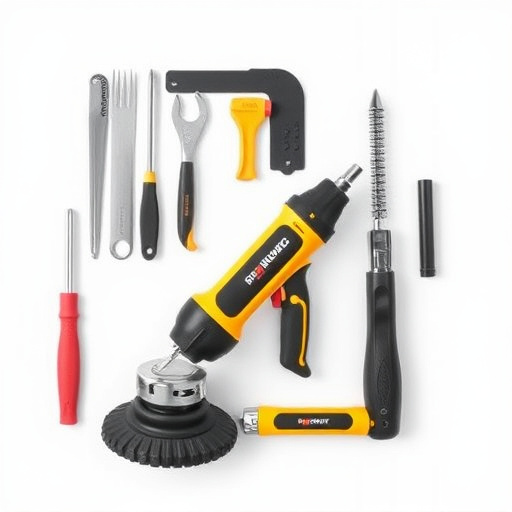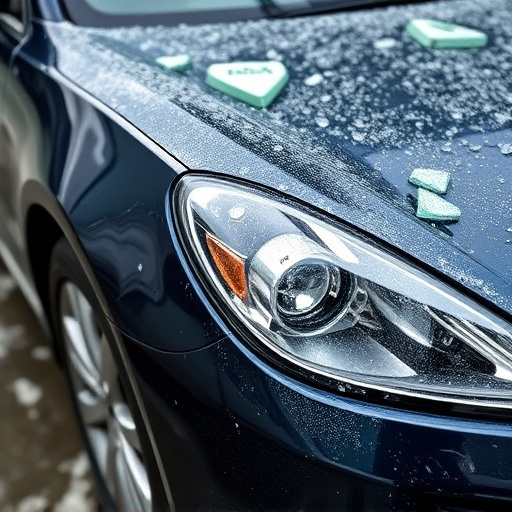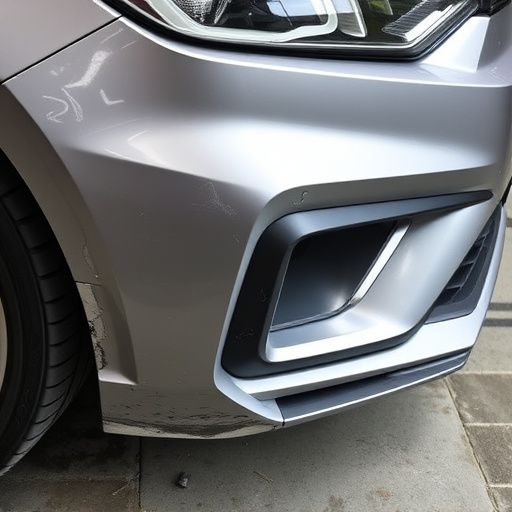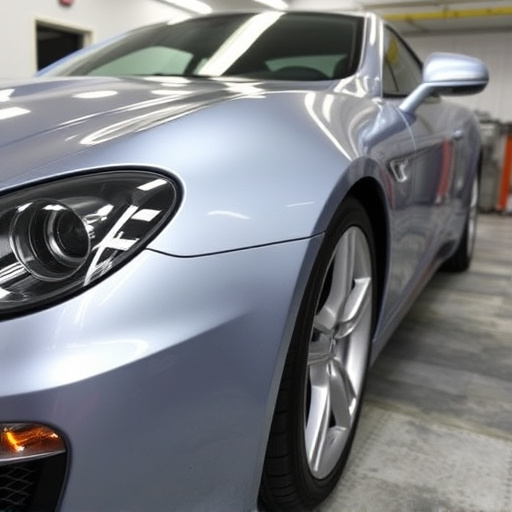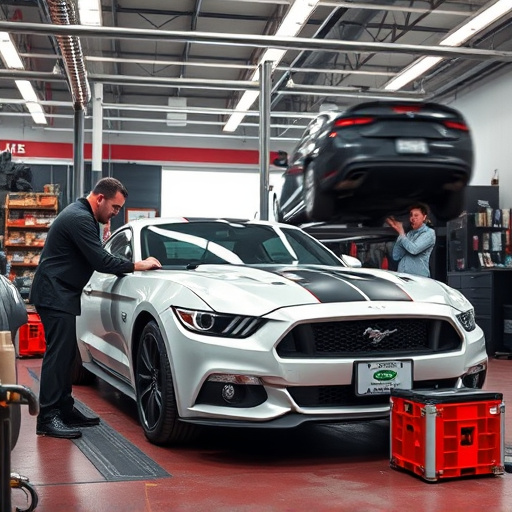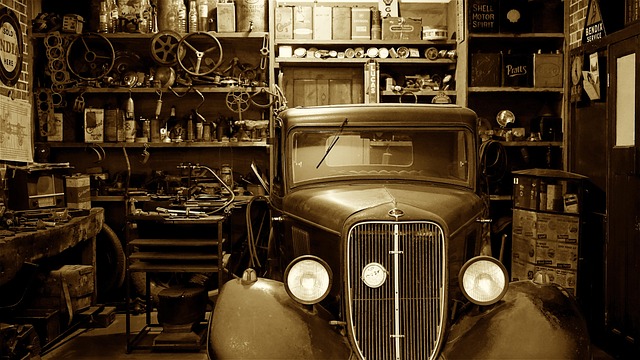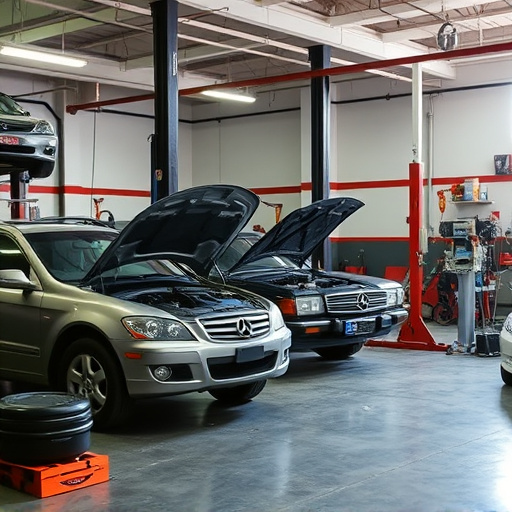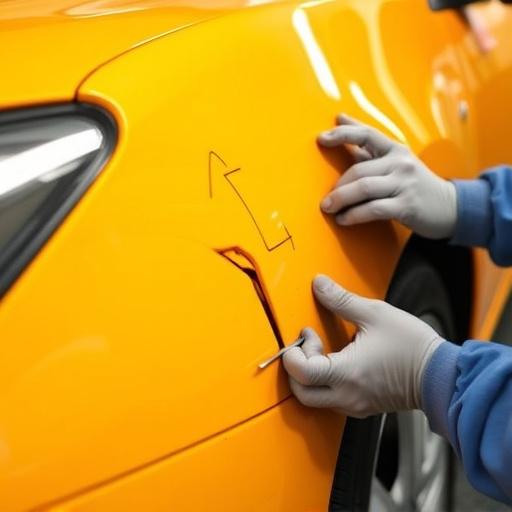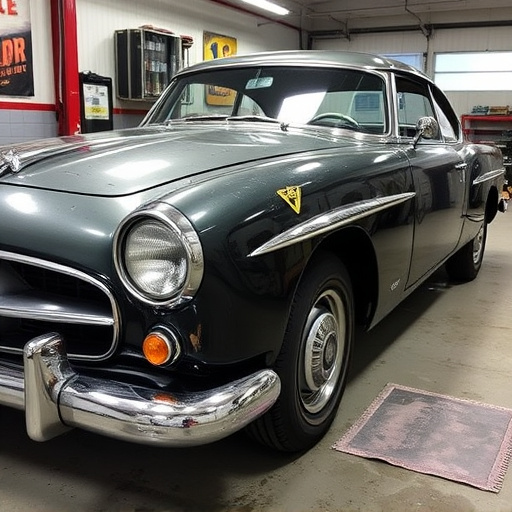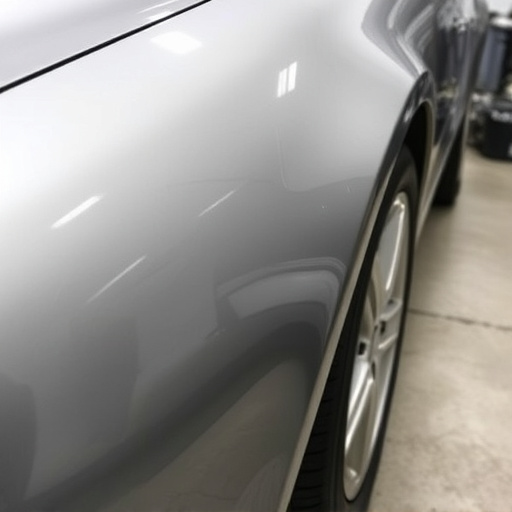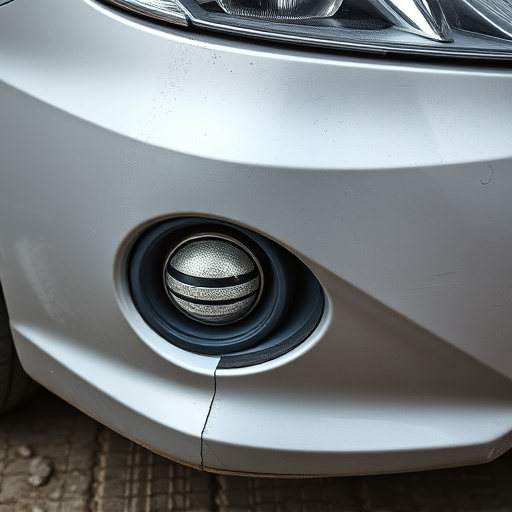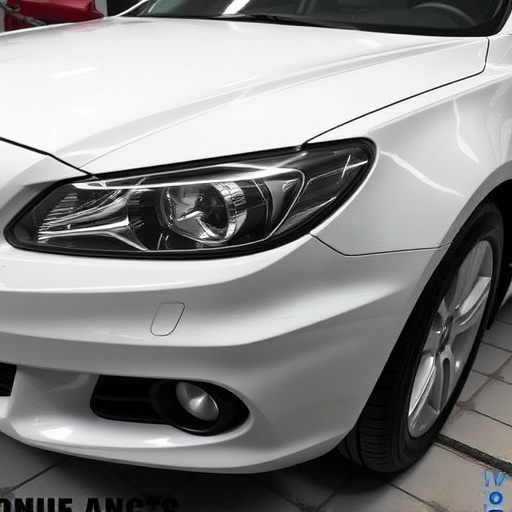Mercedes impact sensor calibration is a vital process ensuring vehicle safety and efficiency. These sensors detect and measure impact force and position during accidents, triggering safety systems like airbags and crash avoidance. Calibration involves precise adjustment against Mercedes-Benz standards to maintain optimal performance, enhancing safety and ensuring repairs meet OEM specifications. Regular calibration prevents drift, misdiagnosis, and optimizes safety outcomes while reducing costs associated with unnecessary body shop repairs.
Mercedes impact sensors play a critical role in enhancing vehicle safety, detecting collisions, and triggering airbags. Proper Mercedes impact sensor calibration is essential for optimal performance. This article delves into the intricate process of torque and position verification during calibration, ensuring these sensors operate accurately and efficiently. By understanding these procedures, vehicle owners and mechanics can contribute to maintaining peak safety standards, a crucial aspect of modern automotive technology.
- Understanding Mercedes Impact Sensor Calibration
- Torque and Position Verification Process
- Ensuring Optimal Vehicle Safety Performance
Understanding Mercedes Impact Sensor Calibration
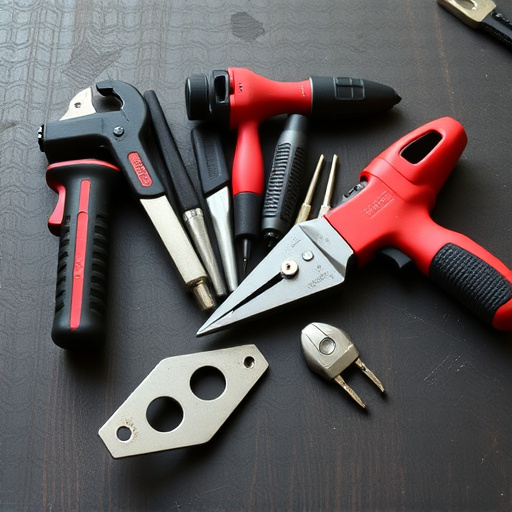
Mercedes impact sensor calibration is a critical process that ensures the safety and efficiency of modern vehicles. These sensors play a vital role in detecting and measuring the force and position of impacts during accidents, which triggers the vehicle’s safety systems accordingly. Calibration involves meticulously adjusting these sensors to guarantee they provide precise data. This process includes verifying both torque and position to meet the stringent standards set by Mercedes-Benz and automotive industry regulations.
Understanding the intricacies of Mercedes impact sensor calibration is essential for auto body services and automotive body shops. By ensuring these sensors are accurately calibrated, technicians can maintain the optimal performance of active safety features, such as airbags and crash avoidance systems. This not only enhances vehicle safety but also ensures that repairs after an accident are carried out correctly, aligning with original equipment manufacturer (OEM) specifications.
Torque and Position Verification Process
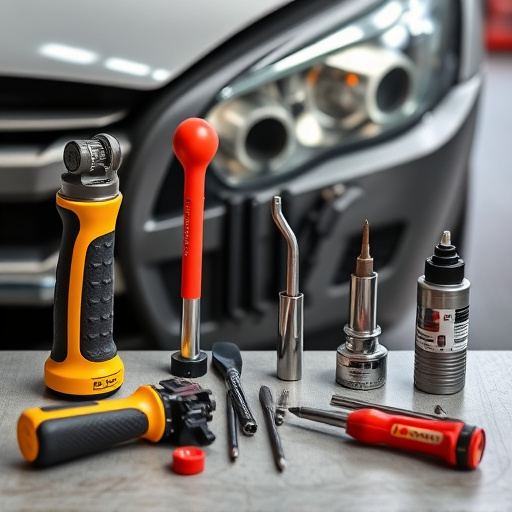
The Mercedes impact sensor calibration process involves a meticulous verification of both torque and position to ensure precise damage assessment. This critical step starts with the installation of specialized equipment that can accurately measure the force applied during an impact event, along with the precise location where the dent or damage has occurred.
Technicians at a reputable car repair shop use this data to cross-reference against manufacturer specifications, ensuring that the sensor is correctly calibrated for optimal performance. This meticulous verification process is crucial not just for accurate vehicle dent repair but also as part of regular auto maintenance, helping to maintain the safety and integrity of your Mercedes’ structural components.
Ensuring Optimal Vehicle Safety Performance
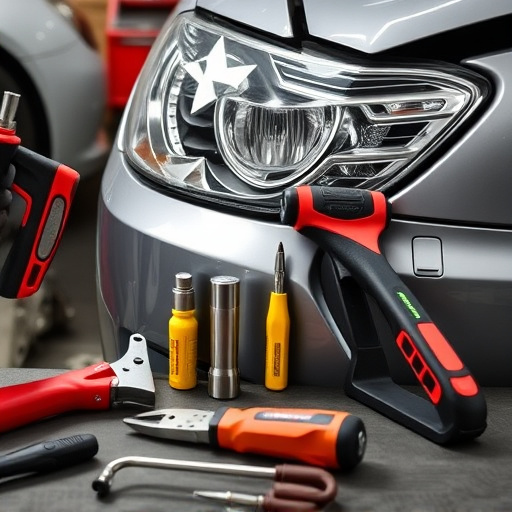
Mercedes impact sensor calibration plays a critical role in ensuring optimal vehicle safety performance. These sensors are designed to detect and measure the force and location of impacts during a collision, facilitating advanced airbag deployment systems and other active safety features. Accurate calibration guarantees that these systems respond swiftly and precisely, minimizing damage and enhancing passenger protection.
Regular calibration also serves as a proactive measure against potential issues that may arise from sensor malfunction or drift over time. A well-maintained impact sensor can prevent misdiagnosis during car dent repair scenarios, ensuring that airbags deploy only when necessary and in the right manner. This not only contributes to better safety outcomes but also reduces unnecessary costs associated with vehicle body shop repairs and extensive vehicle paint repair work due to erroneous sensor readings.
Mercedes impact sensor calibration is a critical process that ensures optimal vehicle safety performance. By accurately verifying torque and position, these sensors can detect and respond to collisions effectively. This meticulous calibration not only enhances overall vehicle security but also underscores the brand’s commitment to providing a safe driving experience. Remember that regular maintenance and proper calibration are key to keeping your Mercedes at peak safety levels.
